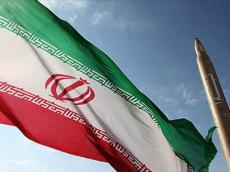|
|
TODAY.AZ / World news
Iran concerned on future of nuclear deal as U.S.passes bill
20 December 2016 [14:47] - TODAY.AZ

By Azernews
By Fatma Alakbarova
Following a U.S. Congress decision on renewal of existing sanctions against Iran last week, Tehran voiced its fears that the move will infringe the terms of the Iranian nuclear deal adopted almost a year ago.
The famous deal inked last year by Iran with P5+1 in Vienna and recorded as the Joint Comprehensive Plan of Action on Iran (JCPOA) was accepted as historic in Iran to save the country from long and devastating sanctions.
By its new decision, Washington prolonged the Iran Sanctions Act (ISA) by the United States passed in 1996 and was set to expire on December 31, 2016.
Speaking to local media, Iran’s president Hassan Rouhani called the Bill ‘a blatant violation of the JCPOA’, adding that Iran will continue to honor the nuclear deal as long as other signatories of the accord keep committed to the deal. Tehran administration addressed an official letter to European Union foreign policy Chief Federica Mogherini who coordinates the work of the joint commission on the nuclear deal to request a meeting of the Joint Commission.
Tehran announced that the joint commission is scheduled to meet on January 10, 2017.
In a meeting with Yukiya Amano, the head of UN nuclear watchdog body, in Tehran last week President Rouhani once again expressed his concern that the White House’s decision on the Bill counteracts the terms of the nuclear deal.
While addressing the complaints by Tehran accusing the U.S. of violating the deal, Yukiya Amano noted that ‘Iranian authorities have shown commitment to their obligations under the nuclear deal’.
Iran’s religious leader Ayatollah Ali Khamenei also warned the U.S. government of breaching the the nuclear, saying the Islamic Republic would definitely react to it.
The U.S. administration stated that unless a waiver is issued under the Iran Sanctions Act, no sanction is re-imposed on the Islamic republic and thus, the nuclear deal is not violated, whilst Tehran didn’t refrain from a response to what it calls the U.S. ‘violation’ of nuclear deal.
What is concerning about this tension between the U.S. government and Iran, is grave consequences for the White House to face as Rouhani has already ordered the Atomic Energy Organization of Iran (AEOI) to begin developing propulsion capability for nuclear-powered marine vessels as a response to the prolongation of the U.S. sanctions.
Experts believe that if no fruitful result is agreed upon the commission meeting, U.S. decision to extend the Iran Sanctions Act will further jeopardize the nuclear deal according to which, Iran agreed to reduce the number of its centrifuges by two-thirds, cap its uranium enrichment below the level needed for bomb-grade material, and reduce its enriched uranium stockpile from around 10,000 kilograms to 300 for 15 years.
The Bill on extension of sanctions came into force without President Barack Obama's signature. Although Obama refused to sign it, he expressed no veto claims. Thus, the Bill became law as it had been passed by both chambers of the U.S. Congress by an overwhelming majority.
URL: http://www.today.az/news/regions/157075.html
 Print version
Print version
Connect with us. Get latest news and updates.
See Also
- 17 February 2026 [23:33]
Engineers create balloon telescope to study exoplanet atmospheres - 17 February 2026 [21:23]
Unilever turns to Google Cloud to boost its AI initiatives - 17 February 2026 [20:21]
NASA set for second complete fueling of SLS rocket - 17 February 2026 [19:45]
Volkswagen, Renault, and Stellantis to face court in France - 17 February 2026 [14:55]
Poland backs joining nuclear project amid growing security concerns - 17 February 2026 [12:49]
Trump to 'indirectly' take part in Iran talks - 17 February 2026 [11:02]
ASCO’s “Balak?n” ferry returns to service after major overhaul, sets sail for Kazakhstan - 17 February 2026 [09:00]
Pentagon plans mobile nuclear reactor test - 17 February 2026 [08:00]
Astronomers find planetary system thought to be impossible - 16 February 2026 [21:23]
UK may ban social networks for under-16s in 2026
Most Popular
 All dots above the "I" and how Baku knows how to place them
All dots above the "I" and how Baku knows how to place them
 Russia may face fresh sanctions after Navalny poisoning findings
Russia may face fresh sanctions after Navalny poisoning findings
 Belgrade hosts 1st meeting of Strategic Partnership Council between Azerbaijan and Serbia
Belgrade hosts 1st meeting of Strategic Partnership Council between Azerbaijan and Serbia
 President Ilham Aliyev, President of Serbia make press statements
President Ilham Aliyev, President of Serbia make press statements
 Why Serbia matters to Azerbaijan in fractured Europe?
Why Serbia matters to Azerbaijan in fractured Europe?
 Decarbonization and pragmatism: how does Baku act?
Decarbonization and pragmatism: how does Baku act?
 China grants visa-free entry to Canada, UK
China grants visa-free entry to Canada, UK
